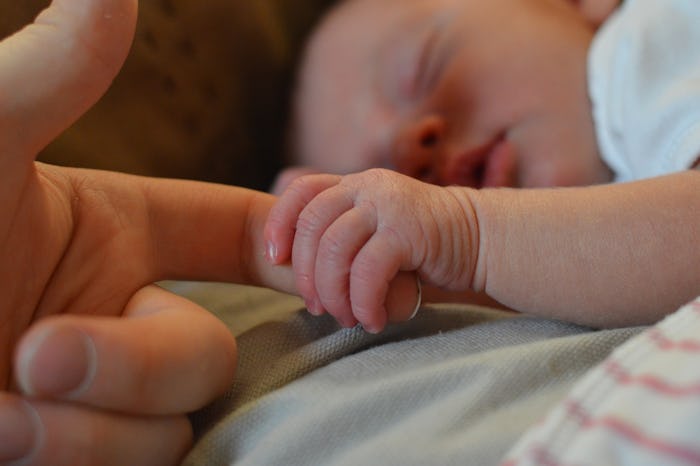Whether or not to sleep train your baby is an issue that has divided parents for ages. Depending on which camp you fall into, training your baby to soothe himself to sleep is either critical to your sanity or an evil method of torture. But if you decide to use the self-soothing technique with your baby, you should know that there are things you could be doing to sabotage the entire process. Which is why you need to know the tiny things keeping your baby from self-soothing.
According to Psych Central, self-soothing is the process of allowing your child to calm himself down when he is distressed. When it comes to sleeping, a baby who learns to self-soothe can use techniques such as sucking on fingers or toes to calm himself down until he is asleep. According to Dr. Sears, babies can begin to learn to self-soothe between 6 and 9 months of age.
But babies are not born knowing how to soothe themselves, which is why parents play an important role in the process. Establishing a consistent bedtime, dressing baby in comfortable clothing, and resisting the temptation to rush in every time the baby cries can help make the process much smoother than everyone involved.
If you are dreaming of the day when your baby can soothe herself to sleep, make sure you're not letting any of these things get in the way. And soon you should be able to enjoy a decent night's sleep — until she starts teething.
1Brain Development
As author and parenting expert Sarah Ockwell-Smith points out, self-soothing is a skill that babies need to learn as their brains develop. The limbic system or the feeling part of the brain needs to be developed in order for a baby to know how to regulate their own emotions. This process happens in the first three years of life.
2No Regular Bedtime
Setting a regular bedtime each night can help your baby become conditioned to be sleepy at a particular time. As Baby Center mentioned, an overtired baby will have a hard time calming himself down.
3Not Dressing For The Occasion
As Dr. Sears noted on his site, making sure your baby is dressed properly is a key factor in making sure she gets a good night sleep. Be prepared to adjust the layering and temperature in the room to make sure she is comfortable.
4Not Standing Your Ground
No one ever said sleep training was easy. It can be difficult for parents to let their baby's cries go unanswered. However, as Parents points out, it is important for sleep training parents to remain consistent and not give in — no matter how tough things get.
5Rushing In
It's natural to want to swoop in to your baby's nursery and rescue him at the sound of the faintest cry. But if you are trying to sleep train, you may be doing more harm than good. According to Nicole Johnson of The Baby Sleep Site, you should wait at least a minute before trying to comfort your baby. This will allow him to start learning to comfort himself.
6Feeding To Sleep
According to Baby Center, if you are feeding your baby to sleep, she will not learn to fall asleep on her own. Instead, try feeding your baby earlier in the bedtime routine. If she starts falling asleep, cut the feeding short and complete the rest of your routine.
7Waiting Too Long
If you decide to sleep train, it's best to start as early as possible. As the Sleeping Baby Site suggests, children who hadn't learned to self-soothe by the age of 1 continued to have trouble falling asleep at age four. The older your child gets, the more difficult it will be to break them of any bad sleeping habits.
